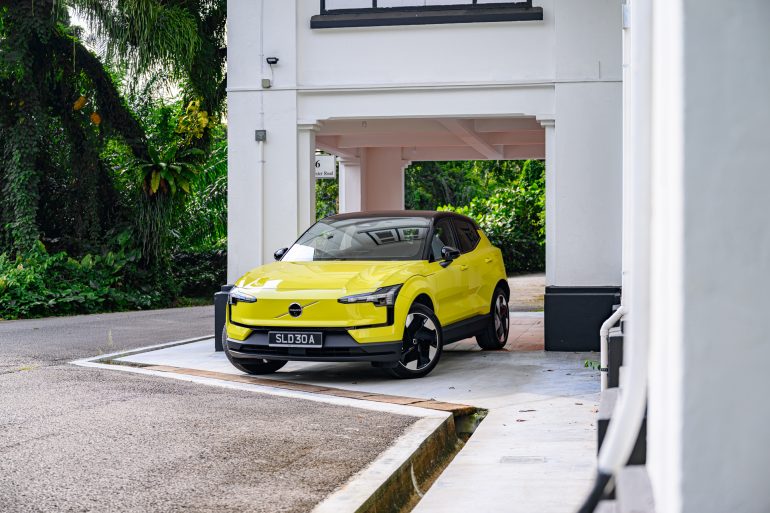For a compact crossover, the Volvo EX30 punches well above its weight.
Volvo’s lineup is a showcase of SUVs these days, and their most compact offering now is the EX30. It’s new and all-electric, which is perfect considering Volvo’s commitment to going fully electric by 2030.
The EX30 shares its platform with the Smart #1 and Zeekr X, thanks to Volvo’s parent company, Geely. But while the bones may be the same, Volvo has sprinkled its own Scandinavian magic over this compact crossover.
it’s awfully sleek.
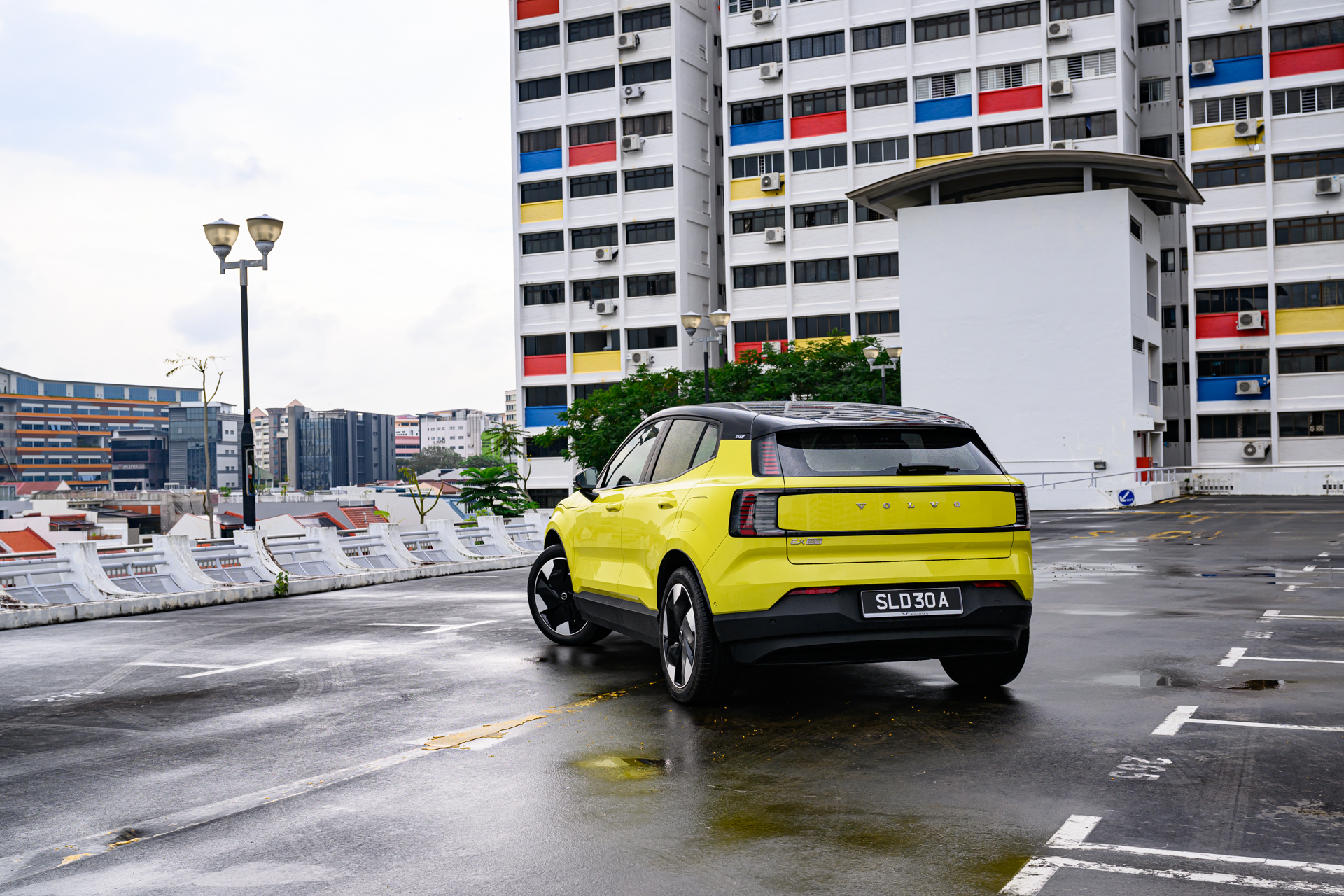
The EX30 doesn’t pretend to be something it’s not, and there’s no attempt at being falsely sporty.
The lines are sharp, the stance is muscular, and the classic ‘Thor’s hammer’ lights are there, though the familiar Volvo grille is swapped for a more streamlined look. Proper chunky door handles too.
and minimalist.

Step inside and the minimalist theme continues. The cabin is designed with sustainability in mind; saving energy, reducing materials, and using fewer components overall.
The whole thing oozes Scandi cool – simple vents, lightweight but comfy armrests, and the dash, which cleverly integrates a soundbar, freeing up space for larger door bins. It’s one of those interiors where everything serves a purpose.
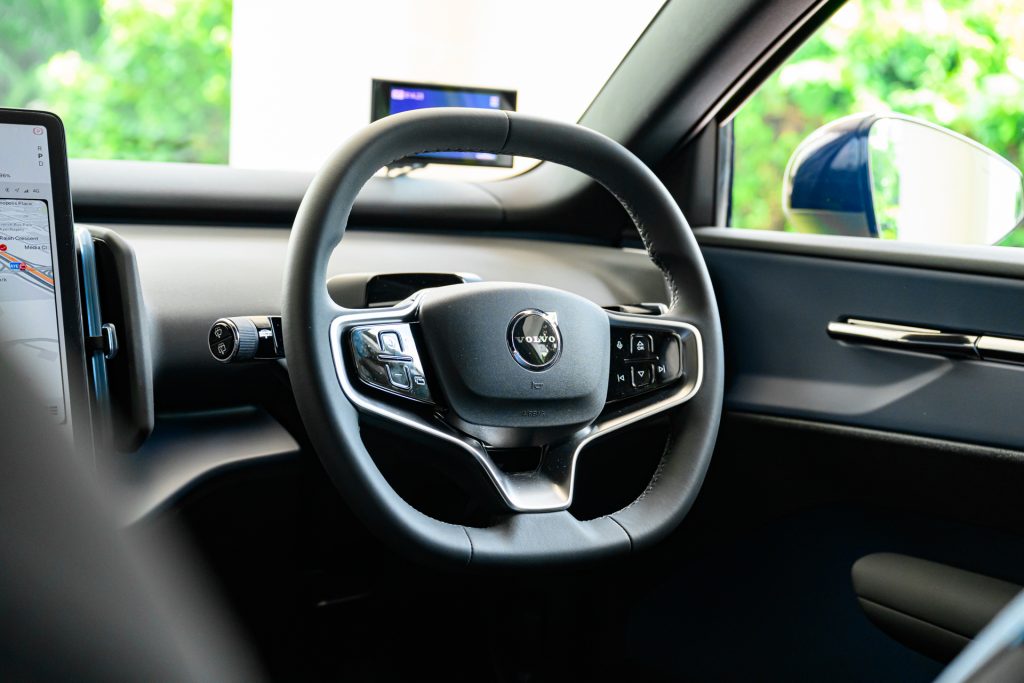
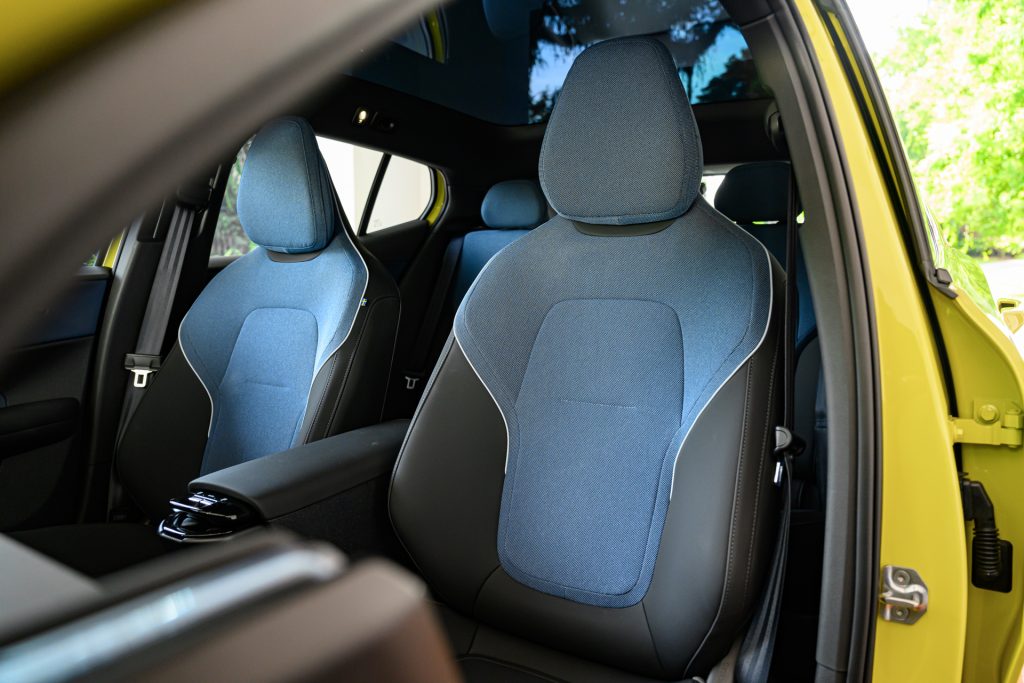
The front seats are as soft as they are supportive, but then there’s that weirdly square steering wheel. The square design doesn’t improve visibility, especially since there are no dials behind it anyway.
wait, where are the buttons?
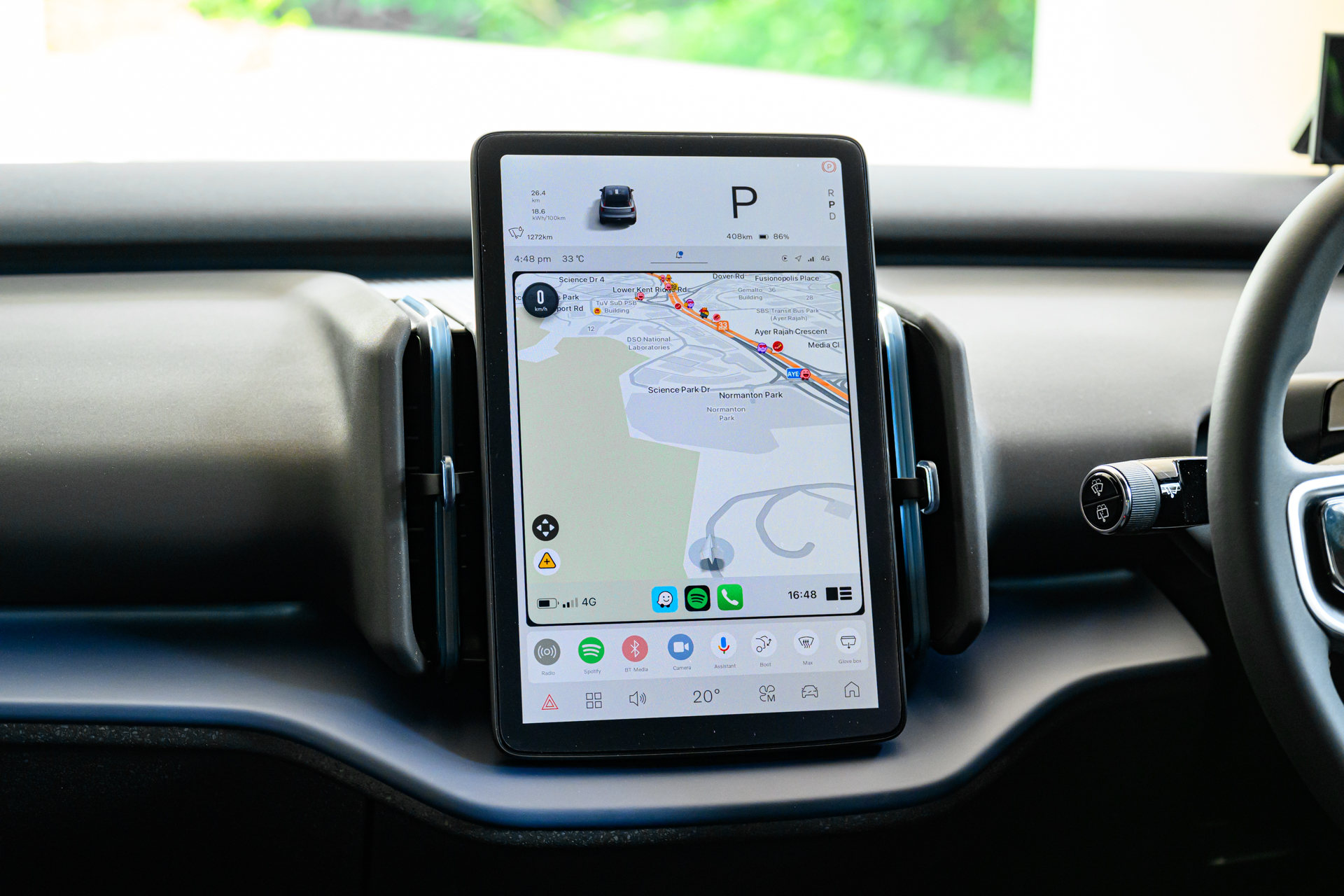
Like the Tesla Model 3, the EX30 has no driver’s instrument pod. Instead, you’ll need to glance left to check your speed and navigation. Volvo claims this shift isn’t a big deal, but in practice, I did find it a little hard to moderate speed for speed cameras.
Everything, from mirror adjustments to climate controls, is buried in the touchscreen. Want to tweak the mirrors while reversing? Sorry, the reverse gear blocks access to that menu. Even things you need in a hurry, like turning on dipped beams or foglights, take the same number of taps as tasks you’d do only when parked, like adjusting the charging schedule.
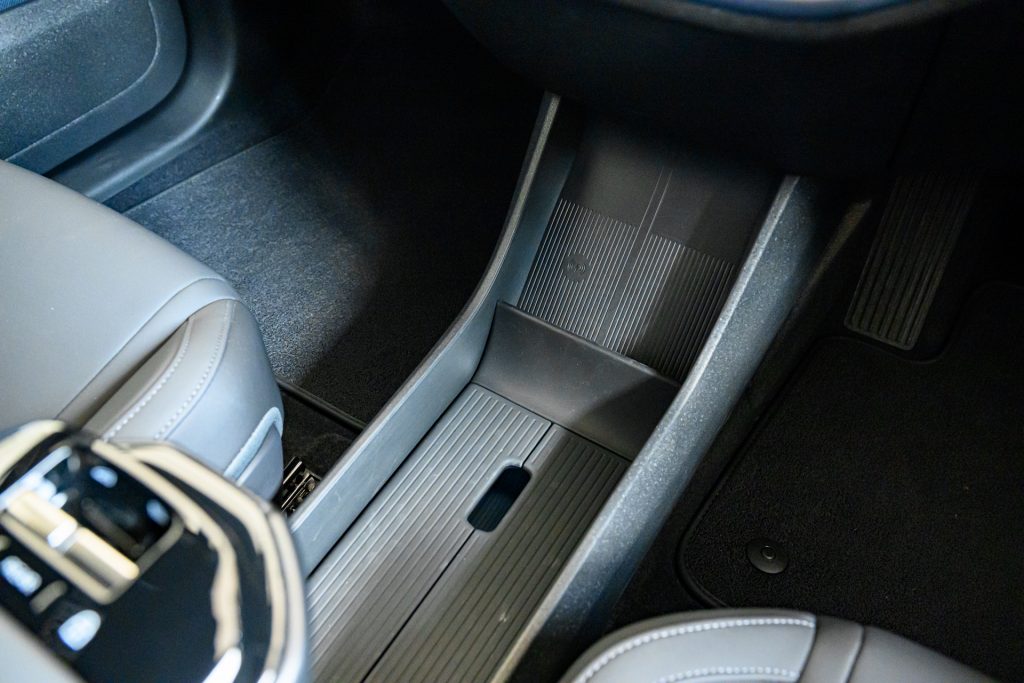
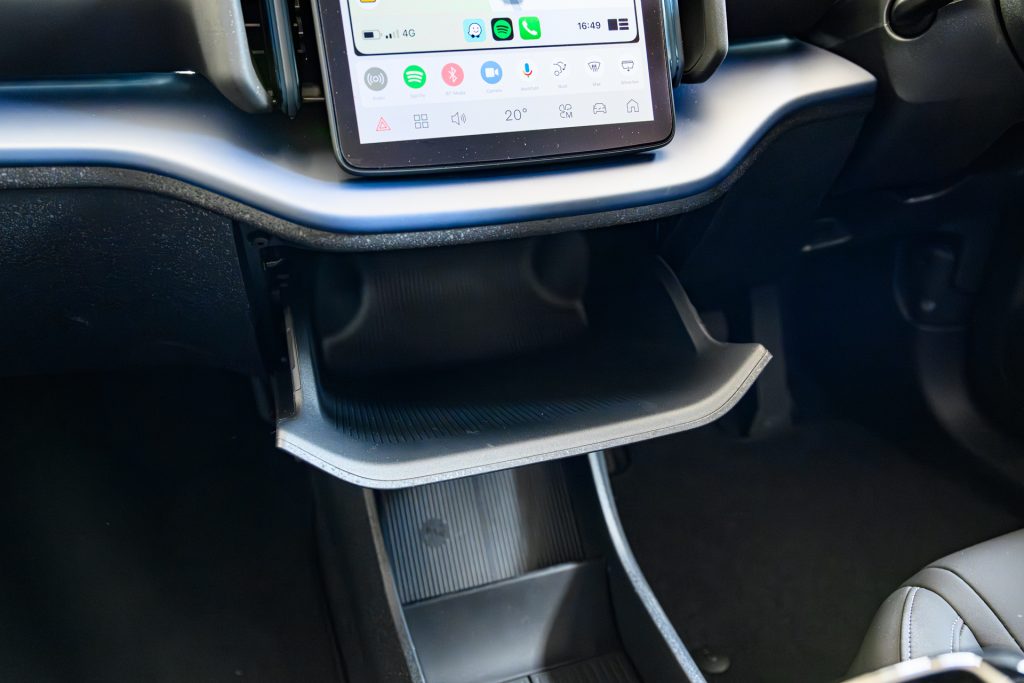
There’s a quick-access menu, but it seems to prioritise the wrong things; changing ambient light colour feels oddly urgent here. Hopefully, a future over-the-air update will sort out these quirks.
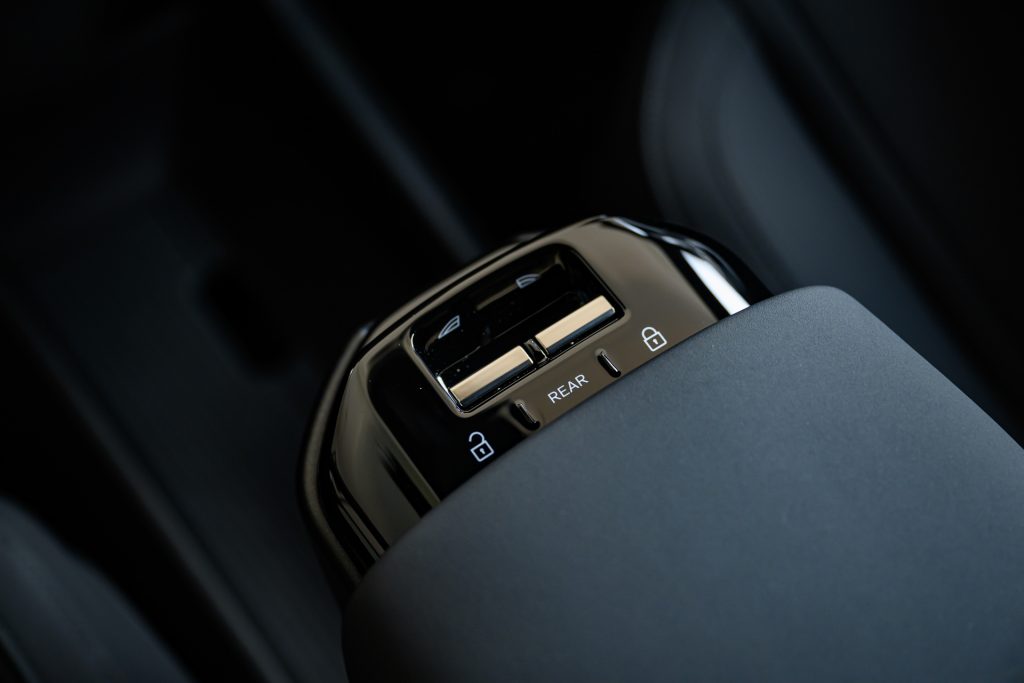
The electric seats, standard with the Ultra trim, have physical switches. But there are only a pair of window switches, with a toggle to manage the rear windows similar to the Volkswagen ID.4.
how’s the rear?
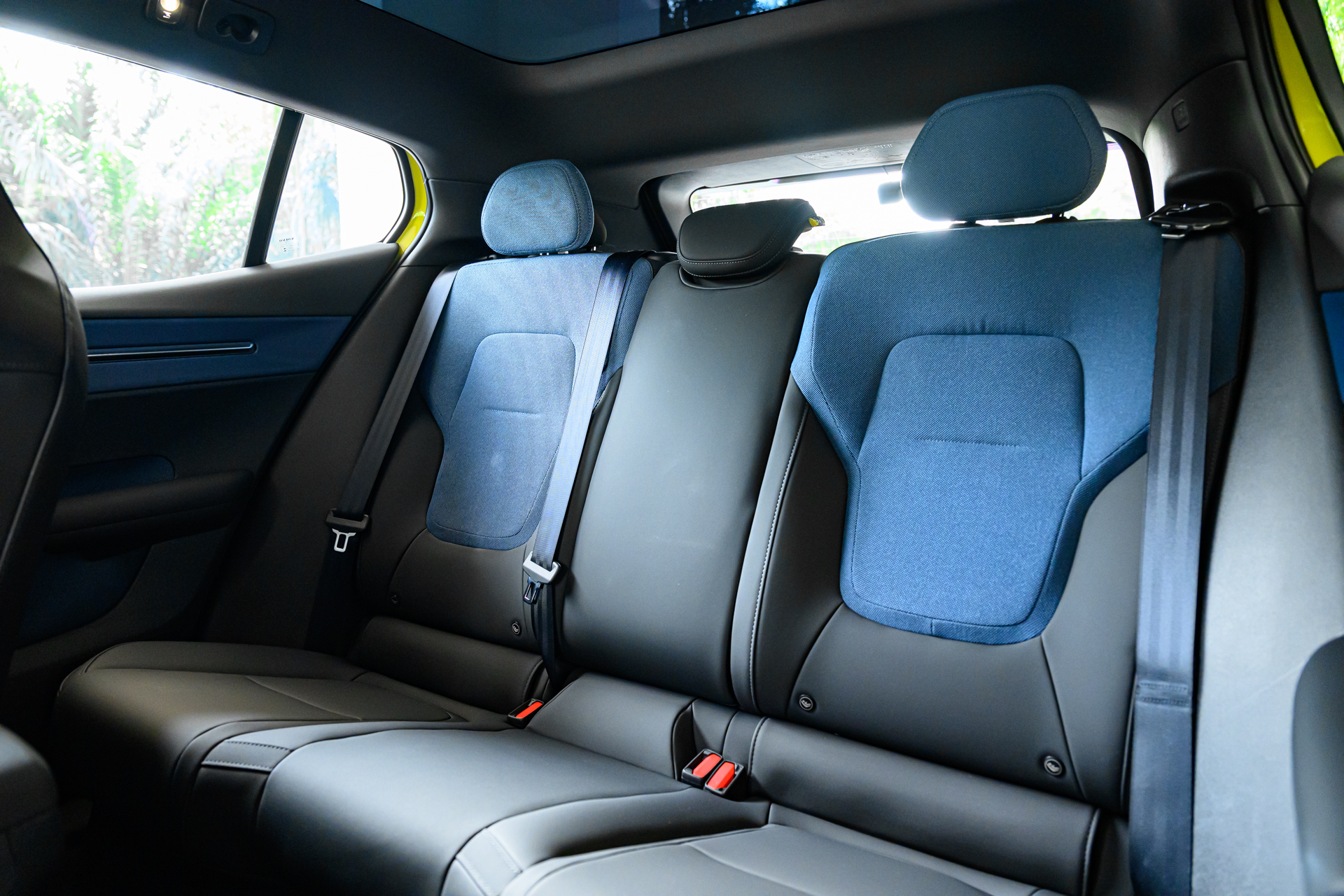
Unfortunately, this is the car’s weak link. The rear legroom is tight, and the high floor and angled seats pushes your knees up uncomfortably.
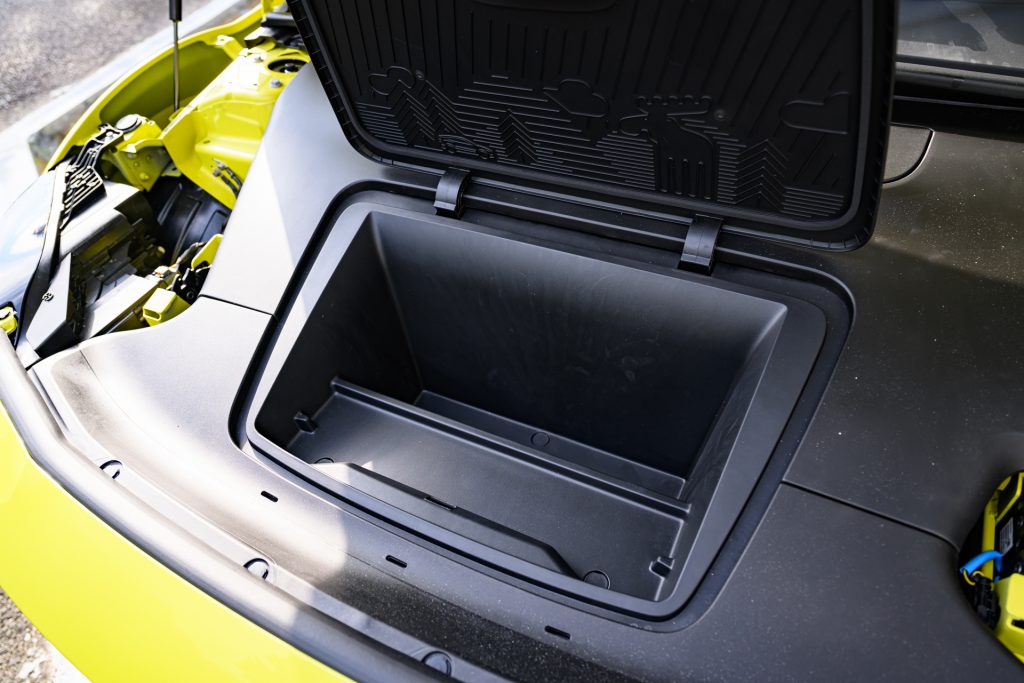
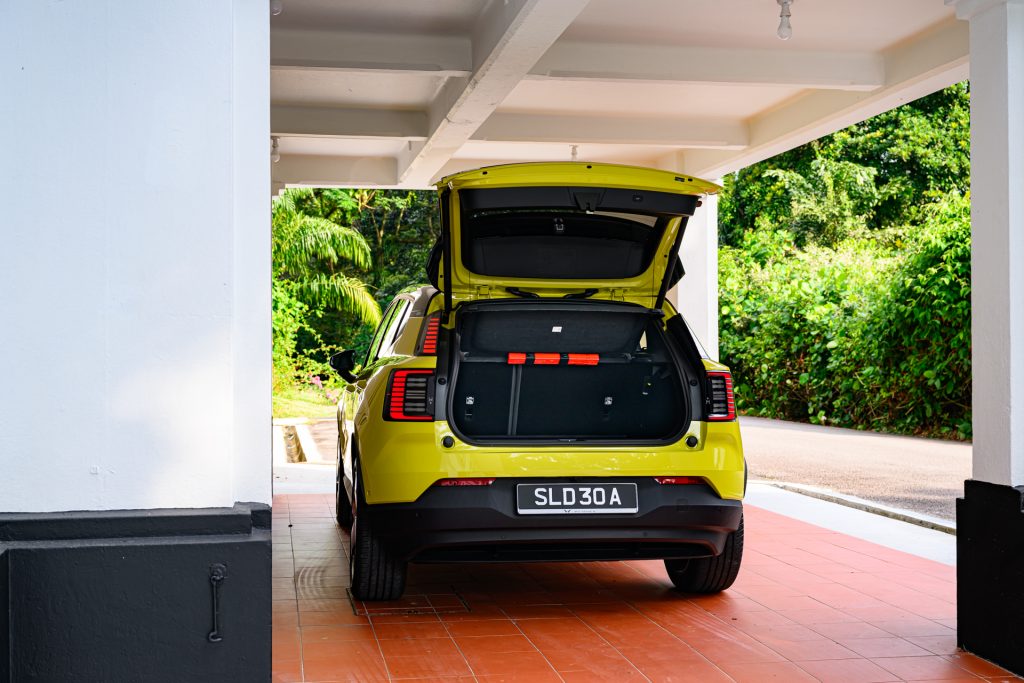
However, the boot is decent at 400 litres with a handy double floor. Plus, there’s a 61-litre frunk that’s just right for storing your charging cables and other small items.
is it easy to drive?
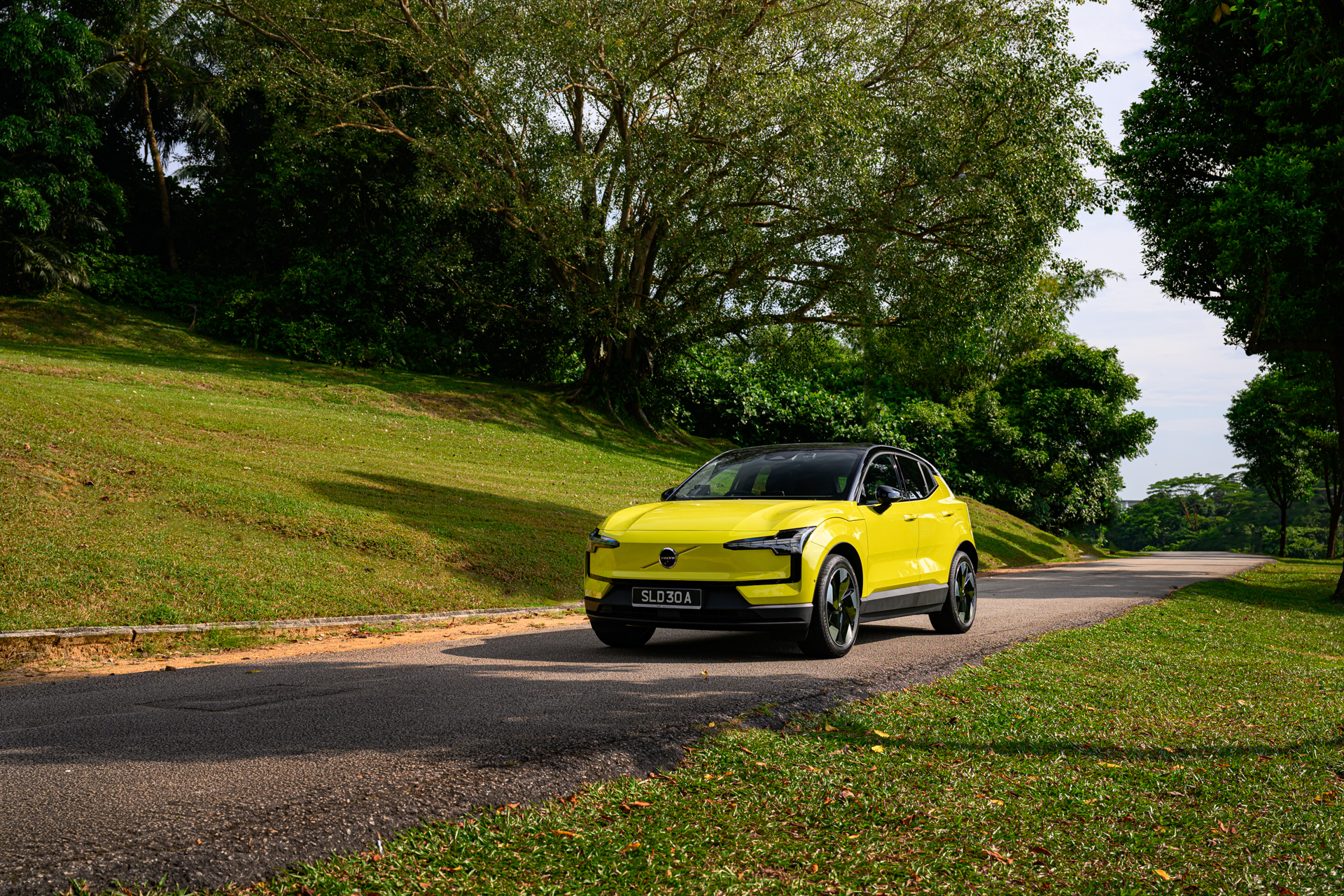
Some folks might appreciate the light steering feel, but it can feel disconcertingly light even in its heaviest setting. But, once you’ve acclimatised, the EX30 reveals itself as a fairly agile car, managing to disguise its slightly porky weight. The rear-drive setup helps keep things neutral when you’re putting the power down, which adds to its surprisingly poised handling.
Where the EX30 really shines, though, is in its ride quality. Despite its size, it offers a cushioned ride that polishes off both big bumps and minor road irritations without much fuss.
In fact, it rides better than its bigger sibling, the Volvo C40 (or EC40 now?), and it’s miles ahead of the wallowy Zeekr X in terms of comfort. The brakes, which meld regenerative and friction braking nicely, are another standout feature.
power and safety when you need it.
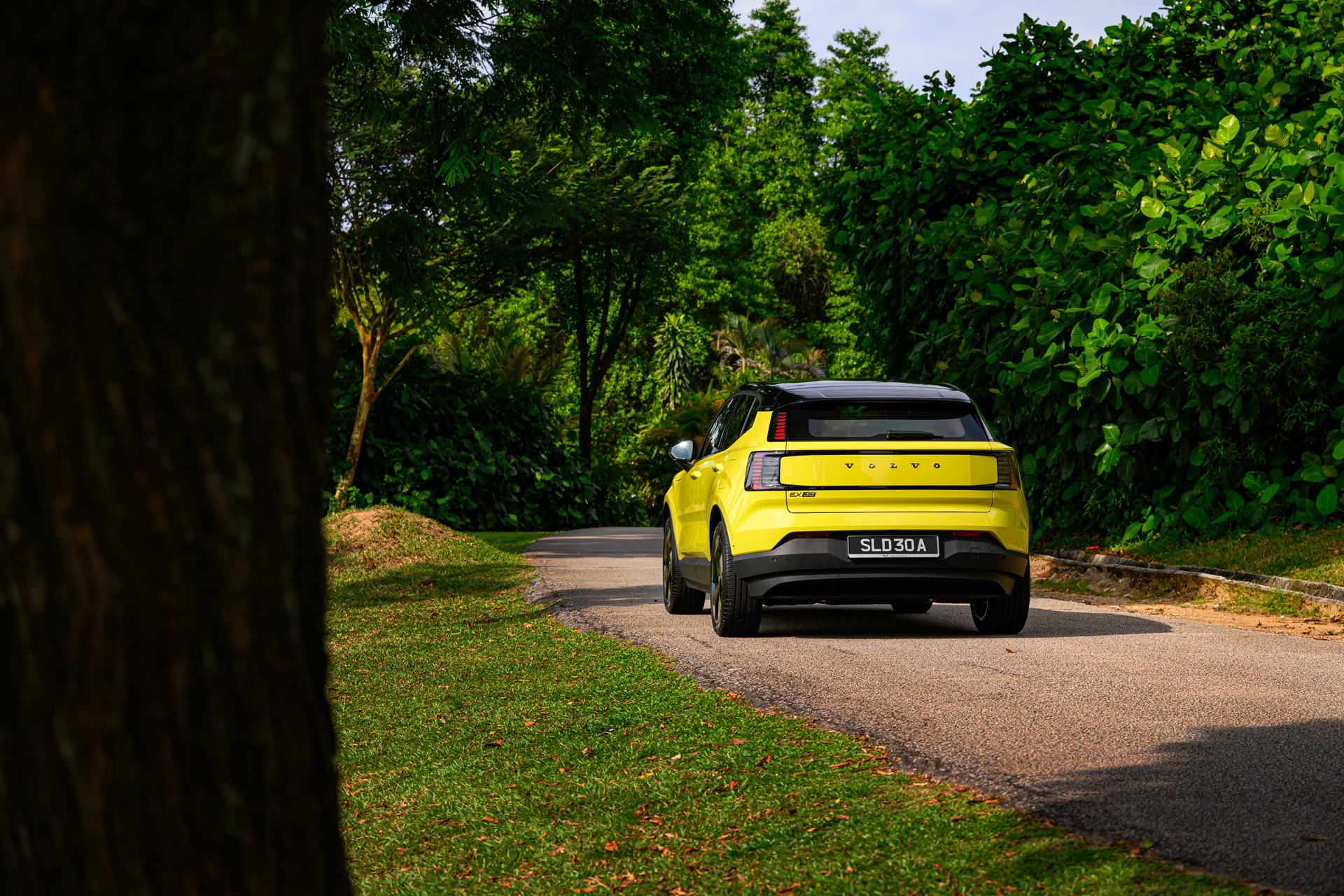
In Singapore, we only get the Ultra variant, which comes with 268bhp and 343Nm of torque. These figures will help you clear the century sprint in just over five seconds.
Volvo is known for its safety tech, and the EX30 doesn’t disappoint. You get all the usual alerts for vehicles, pedestrians, cyclists, and crossing traffic. The 360-degree parking cameras are a handy touch too.
On the highway, the adaptive cruise control and lane-centring system work smoothly without the over-excitable bonging and wheel-grabbing you find in some EVs.
Adjusting the time interval to the car in front, however, requires a bit of a menu dive, something most cars manage with a simple steering wheel button. This can be a little frustrating when you’re merging onto a busy section and need to change settings quickly.
i’m concerned about range.
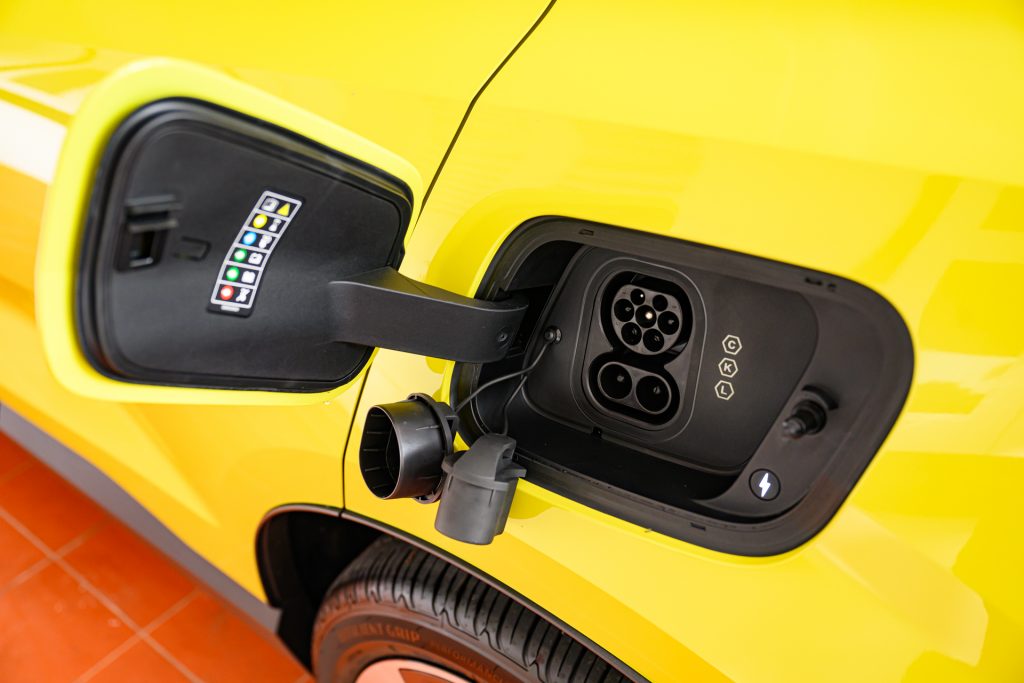
We hear you. With the 19-inch wheels and rear-drive setup, Volvo claims a maximum of 475km (WLTP).
In our tests, we saw a real-world range of 340km with about 21% of battery left, which isn’t bad for a 69kWh battery.
So don’t worry, the EX30 can confidently fit a week’s worth of driving before needing a juice-up. Even so, with a 153kW max charging rate, the car will be charged up before you can finish lunch.
sensible Swedish solution.
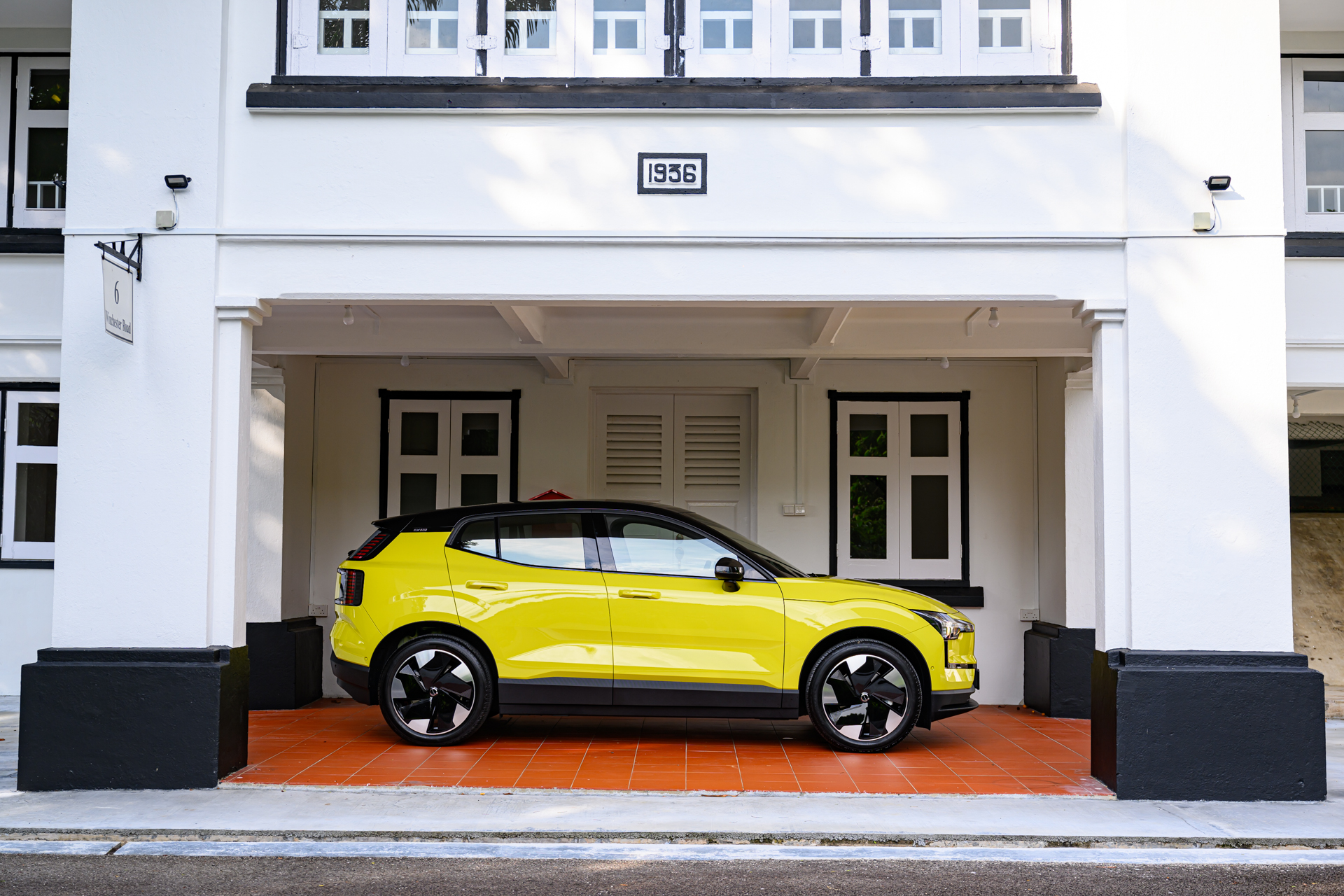
The Volvo EX30 feels solid and refined, and its design is attractive. For what you get at this price point, it seems like a bargain compared to some of its rivals. While it might be better for a pair of drivers instead of a family, for the most part, this is a likeable, well-rounded EV that ticks a lot of boxes.
If you’re after something compact and fun to drive, this little Swede should be on your shortlist.
technical specifications.
Volvo EX30 Ultra
Engine: Single Electric Motor, Rear Wheel Drive
Power: 200 kW (268 bhp)
Torque: 343 Nm
Gearbox: Single-Speed (A)
0-100km/h: 5.3 seconds (claimed)
Top Speed: 180 km/h
Battery Capacity: 69 kWh
Drive Range: 475 km (claimed)
Energy Consumption: 5.7 km/kWh (claimed)
Price: S$247,000 with COE (accurate at the time of this article)
Contact: Volvo Singapore
Photo Credits: Sean Loo (@auto.driven)
Check out more green rides here, or check out our latest videos on Ignition Labs TV and on TikTok!

